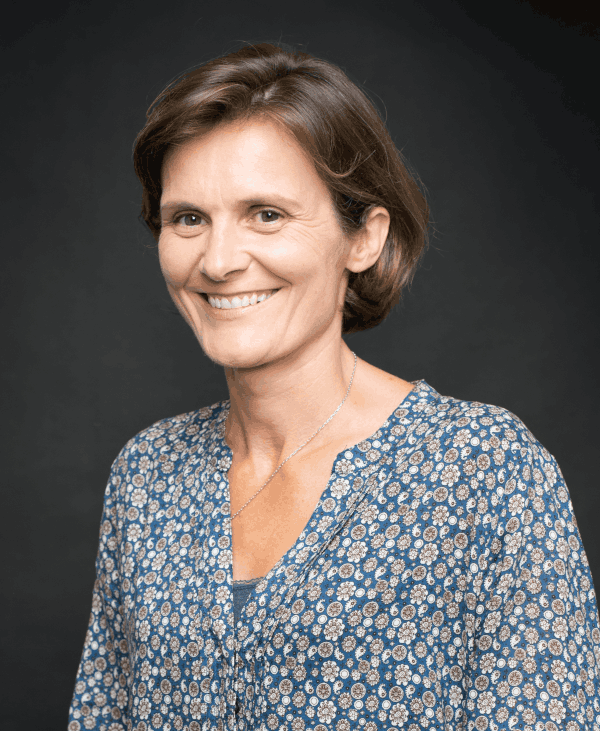Accelerating the transition of business through an innovative new executive program
An expert in the social and environmental aspects of running a business for almost two decades, Bénédicte Faivre-Tavignot - Associate Professor of Strategy & Business Policy at HEC Paris, and also Executive Director of the Society & Organizations Institute - was the obvious choice to head up a new program in Sustainabilty Essentials. In this interview, she explains why the course is needed, why HEC Paris has partnered with the Stockholm School of Economics, and why she is putting her faith in the leaders of tomorrow.

Sustainable Transition Management is all about taking a business from where it is today to where it needs to be tomorrow
"We're looking at the ecological and social transition of companies towards a more sustainable way of being, addressing such things as climate change, resource depletion and rising inequalities along the way. These are all megatrends that can be seen as a threat to society, and we have a compelling need today for businesses to address them, anticipate what's around the corner and try to understand their complexities. Adding to this are the pressures on business to change and improve from external stakeholders, too."
This pressure from external and internal forces is proving to be persuasive
"Among these pressures, we find investors asking companies to be much more proactive when it comes to questions about climate and biodiversity - they want to compare how rigorous company A's policies are compared to company B, and there is similar pressure from regulators, too. In Europe from 2023, for example, all companies will have to assess their social and environmental impact, based on multiple criteria that are currently being defined. There is pressure from customers as well: customers want to buy from companies that they believe to be sustainable. If a company doesn't address these questions now, they will have problems in the mid-term and in the long run. In fact, the companies that ignore what's going on probably won't be around in a few years."
The Sustainability Essentials course will give current and future leaders the tools they need to understand, anticipate, and react
"It is something we have been working on for more than a year. One of the main focuses is to first understand what is expected of companies today in terms of the megatrends and the pressures that businesses are under. We can then address how companies can actually transform themselves."
This is all vital information for managers and future leaders who want to be part of the solution rather than the problem
"The course is for people who want to integrate this new culture in their businesses, or who want to be the sustainability ambassador within the company. It's designed to appeal to people who want to be actors of change and put both purpose and sustainability at the heart of their day-to-day work activity."

Four modules will make up the course, which embraces a new hybrid way of working
"What is new to me is the hybrid element behind the new course. The first module is all about megatrends and this is a digital module where we will look into things like 'the doughnut economy' which explores the main planetary boundaries such as climate change and biodiversity. It will also look at the social boundaries that firms must not cross. The second module will take place here in Paris and the idea is to react to the first module and complete it with a geopolitical perspective, and get to know each other in person so participants can better understand the different pressures a firm has. It is both a question of risk management but also opportunities for companies to understand the different pressures and the acceleration of these pressures from regulators, millennials, consumers and so on."
The third phase of the course, also digital, will explore how companies can transform major management disciplines such as supply chains, finance and marketing and start exploring more sustainable business models
"The fourth and final part of the course will be a study trip to Stockholm where we will look at how to build low-carbon business models and strategies. We will visit, for example, a fossil-free fuel company and we will study how we can lead change within an organization. It will be very interactive, with lectures and visits to help us explore the role of digitalization and new technologies on these transitions. I see this fourth module as the cherry on the cake!"
The involvement of the Stockholm School of Economics was strategic
"HEC Paris and the Stockholm School of Business have common values. Not least of these is a common sense of urgency, but I think we also have the same kind of strategic approach to sustainability. We also wanted another cultural perspective that would enrich the program, and our Swedish partner offers this."
Once they have completed the course, Professor Faivre-Tavignot hopes that participants will have a far better understanding of today's and tomorrow's megatrends and their various complexities
"We want them to develop the capacity to deal with these complexities and also anticipate what the future has in store. We will mostly be focusing on the tools and approaches that can help them to lead the transition of the businesses they work for in the best possible way. We also hope to inspire them with testimonials from the different people they will be meeting - we want them to see that this transition is not only necessary, but that it is possible, too."
Finally, on a personal note, Professor Faivre-Tavignot is excited that the course will help HEC Paris to reach a wider audience than ever before
"This is a chance for us to use digital tools to really scale up and reach out to more people, although it remains essential to the success of the course that we also do things together, in person, and build groups of changemakers who can assist each other as they lead the businesses they work for today and tomorrow through transition. We need to build strong networks and coalitions of actors who want to build this sustainable economy, and this program aims to do that."